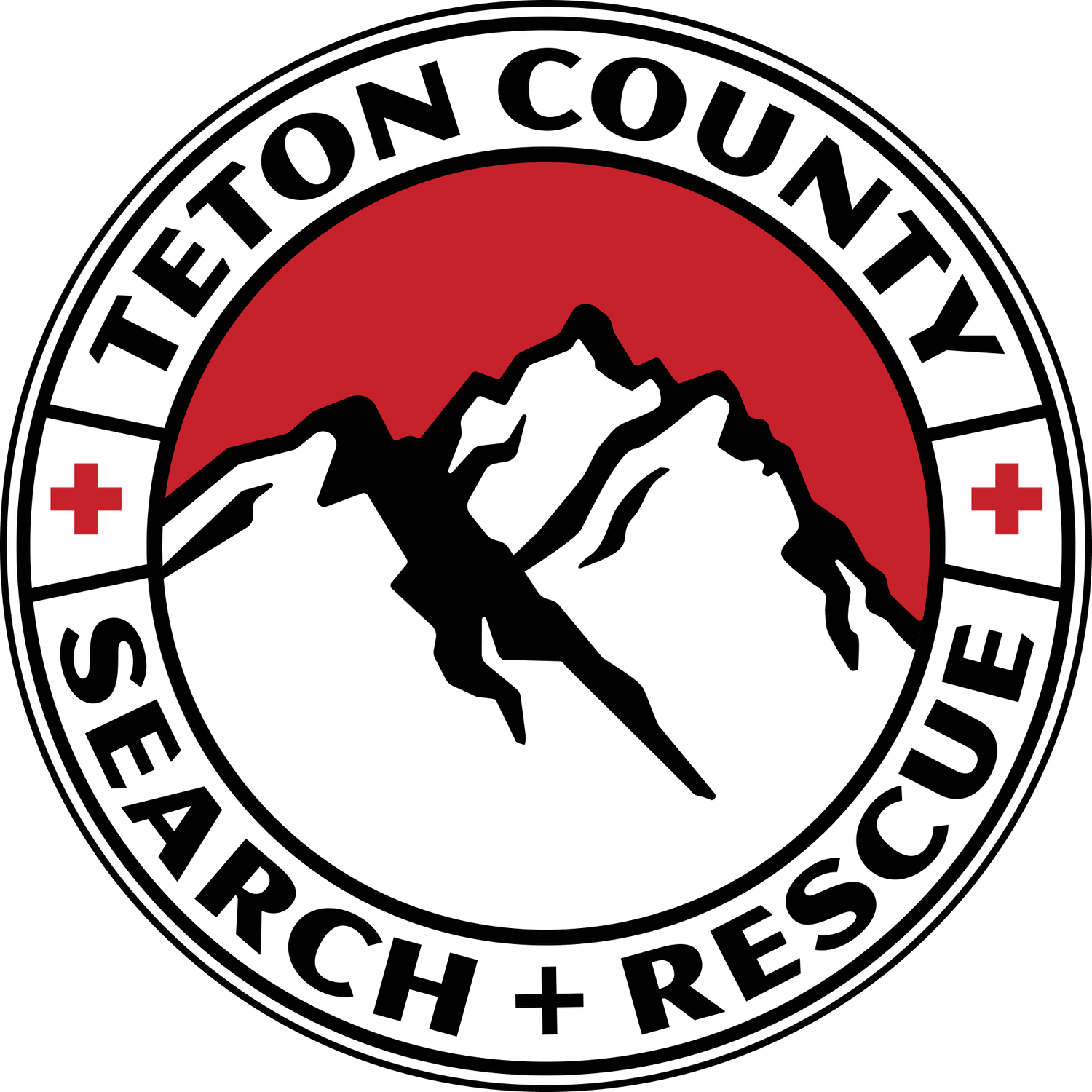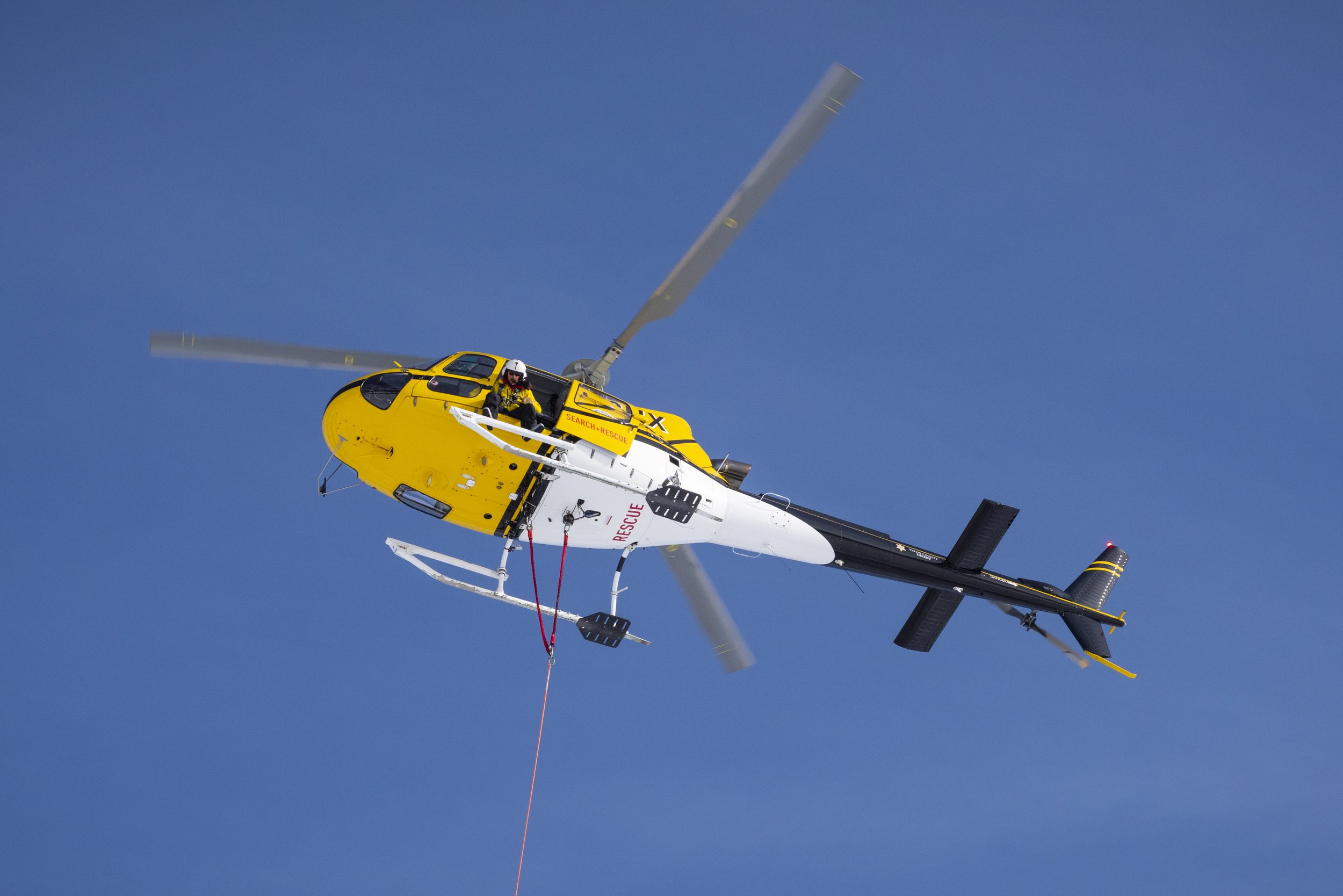On July 20, 2022, the Jackson Hole News & Guide Editorial Board weighed in on Teton County Search & Rescue’s campaign to purchase a year-round SAR-dedicated helicopter. The link to the article is below. But we also want to take this opportunity to shed light on how TCSAR operates to help place this campaign into the larger context of SAR operations.
The JHN&G Editorial Board writes that it would be “wise to get out of the rental gamble” by purchasing a year-round SAR helicopter rather than leasing one for eight months. Photo: David Bowers
The campaign, known as Mission Critical (SAR terminology for a life-or-death scenario), was presented the week prior to the Teton County Board of Commissioners. The campaign calls for the TCSAR Foundation to raise the money necessary to purchase an Airbus H125 helicopter and then hand it over to Teton County. Annual operations would continue to be funded by the Teton County Sheriff’s Office through the county’s normal budgeting process. This is the same budgeting process that has funded TCSAR’s annual operations since its inception in 1993. But instead of funding the current eight months for a helicopter lease (about $350,000 annually), the county would budget for 12 months (about $500,00-600,000 annually).
It’s important to point out that all rescues performed by TCSAR are free of charge, and that the cost of those rescues are reimbursed by the state of Wyoming or National Park Service. Those reimbursements go directly back to the county, not the Foundation. In 2021, those reimbursements totaled around $99,000.
Only a handful of states currently allow people to be charged for rescues to varying degrees. Wyoming does not charge for rescues. In our own county, there is no legal mechanism for the Sheriff or SAR team to collect reimbursement from a private individual who has been rescued. Changing this system would require years-long efforts to persuade the state legislature to adopt a new statute for the entire state.
Meanwhile, callouts for TCSAR continue to occur at a record pace—meaning the team has to figure out how to solve these problems today. Just in the last month, TCSAR has had to request the interagency helicopter from Teton Helitack seven times. Because TCSAR does not have a ship on contract from June 1 to October 1, the team must get these heli requests approved by federal agencies, which are busy fighting fires and doing their own rescues in Grand Teton National Park. Without these requests being approved, the accidents we’ve seen this summer could have had drastic, life-altering consequences.
In states like Utah and Colorado, SAR cards help defray some cost to SAR teams, but by and large, counties in those states still don’t charge for rescues. Essentially, the cards are a great way for people to express their support for Search & Rescue services, but the cards don’t act as insurance or intend to cover the full cost of every individual rescue.
In Wyoming, SAR funding comes from the sales of hunting and fishing licenses, grants, and voluntary donations. In Teton County, TCSAR is additionally blessed to have such generous community support through events like Old Bill’s.
TCSAR volunteers conduct an interagency helicopter rescue earlier this summer. If the ship is busy or unavailable due to use by federal agencies, the team does not have a helicopter available from June-October. Photo: TCSAR
National Parks, such as Grand Teton and Yellowstone, do not charge for rescues. As TCSAR works hand-in-hand with these federal agencies, having a different model would add layers of confusion and proverbial red tape to the recreating public and the rescuers themselves.
Moreover, charging people for rescues discourages or delays people from calling for help. Delaying a call for help can cause needless danger in a rescue, or unnecessarily complicate a search for a missing party. This can lead to potentially compromising scenarios for both the patient and rescuers who may be called later when the situation is worse. (This is an excellent video from Alpine Rescue Team in Colorado further explaining why this policy is so important.)
TCSAR is run by volunteers and built on a public/private partnership to serve locals and visitors alike. With the Sheriff’s Office funding annual operations, TCSAR Foundation raises money for direct volunteer support (such as gear, training, meals, and mental health support) through private donations. With backcountry recreation in Teton County forming a significant part of our region’s economic and cultural backbone, TCSAR and the Foundation believe that funding a voluntary SAR service helps sustain a healthy community for everyone.
We appreciate the Editorial Board’s perspective on this campaign, and look forward to continuing to share information about SAR operations and how a year-round SAR helicopter will be a valuable asset for the entire community. There will be a lot more to come on this campaign in the future. So please stay tuned and learn more here.
To read the Editorial, go here or click on the button below. Thank you to our partnering agencies who help our team bring people home safely. And thank you for supporting TCSAR.



